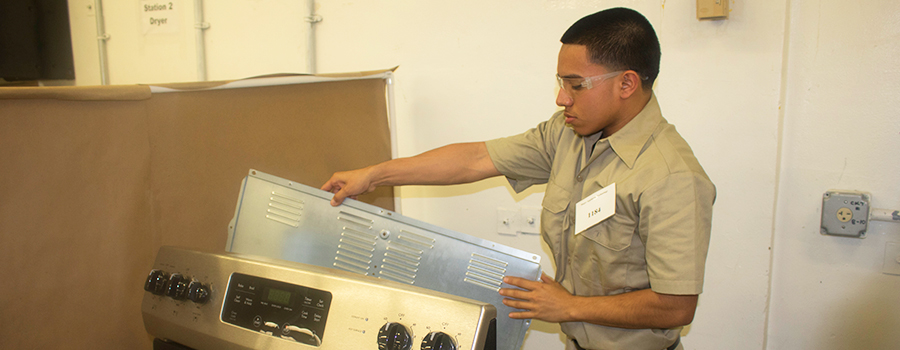Essential Tips for Effective Ref Fixing to Prolong Appliance Life-span
When it comes to your refrigerator, correct repair and maintenance are crucial for longevity. Recognizing typical problems and understanding when to act can make all the difference.
Comprehending Usual Refrigerator Problems
Refrigerators are vital in maintaining your food fresh, but they can come across a variety of usual problems that interrupt their efficiency. One constant issue is insufficient cooling. If you see food spoiling quicker than usual, inspect the thermostat settings or take into consideration if the door seals are harmed. One more usual issue is extreme sound, which can indicate a malfunctioning compressor or a failing fan. You might likewise experience water merging inside or below the fridge; this often results from a clogged up defrost drain or a malfunctioning water line. Furthermore, if your fridge's light isn't working, maybe a straightforward light bulb issue or a trouble with the door button. Ice accumulation in the freezer can impede air flow and cooling down effectiveness. Acknowledging these concerns early can conserve you money and time out of commission, guaranteeing your fridge runs smoothly and efficiently.
Normal Maintenance Practices
To maintain your home appliances running smoothly, you need to remain on top of routine maintenance methods. Clean the condenser coils, inspect the door seals, and keep an eye on the temperature level settings to assure peak efficiency. These simple tasks can conserve you money and time on repairs down the line.
Tidy Condenser Coils Routinely
Cleansing your condenser coils consistently can greatly boost your appliance's effectiveness. Dirt and dust construct up on these coils over time, triggering your home appliance to work tougher and consume more power. To maintain them clean, disconnect your home appliance and carefully eliminate any kind of safety covers.
Inspect Door Seals
Three straightforward steps can help you assure your device's door seals are in excellent condition. Second, clean the seals utilizing cozy, soapy water to remove any debris or grime. By complying with these steps, you'll maintain your device's effectiveness and durability, conserving you money on power costs and repairs in the long run.
Display Temperature Setups
Frequently checking your device's temperature level setups is necessary for ideal performance and performance. Whether you're managing a refrigerator, fridge freezer, or stove, keeping an eye on these setups can protect against numerous concerns. For refrigerators, go for temperatures in between 35 ° F and 38 ° F; for freezers, linger 0 ° F. If the temperatures are too expensive or low, your home appliance might work harder, losing power and shortening its lifespan. Make use of a thermostat to inspect these settings frequently, specifically after major changes, like relocating your device or readjusting the thermostat. If you observe changes, adjust the settings accordingly and get in touch with the customer handbook for support. By remaining proactive about temperature level tracking, you'll assure your devices run efficiently and last longer.
Fixing Cooling Issues
When your refrigerator isn't cooling appropriately, it can lead to ruined food and lost money, so attending to the problem promptly is crucial. Begin by checking the temperature settings to verify they go to the recommended degrees, generally around 37 ° F for the refrigerator and 0 ° F for the fridge freezer. If the settings are correct, check the door seals for any type of spaces or damage; a faulty seal can permit warm air to get in.
Examine the condenser coils, generally situated at the back or bottom of the device. Clean them with a vacuum or brush to optimize performance. If troubles continue, it might be time to call a professional.
Repairing Water Leakage and Ice Build-Up
If you're managing water leakage or ice accumulation in your home appliance, it's crucial to determine the source of the trouble. By determining where the water is coming from, you can protect against additional problems and prevent costly repairs. Let's check out some efficient techniques to tackle these a fantastic read usual troubles.
Determine Leakage Resources
How can you efficiently identify the resources of water leakage and ice accumulation in your devices? Begin by checking the seals and gaskets on your fridge and fridge freezer doors. A worn or broken seal can enable cozy air to get in, causing condensation and ice. Next, examine the drainpipe frying pan and drainage system for obstructions or obstructions; a backed-up drainpipe can cause water pooling. Look for any kind of loose connections in the water supply line, which can create leakages. Likewise, check out the defrost drain for ice buildup, which might disrupt appropriate drainage. By systematically checking these areas, you'll determine the source of the issue, enabling you to take the needed actions to fix it and extend your device's lifespan.
Protect Against Ice Development
To stop ice formation in your home appliances, start by verifying the temperature setups are ideal. If your refrigerator or freezer is too chilly, it can cause excessive ice accumulation. Inspect the door seals routinely; harmed seals can allow cozy air in, creating condensation and ice development.
Keep the device well-ventilated and prevent overcrowding, as this can block browse around this web-site airflow - Dependable Refrigeration & Appliance Repair Service LG Appliance Repair. Regularly defrost your fridge freezer if it does not have an automated defrost attribute.
If you observe water leak, recognize and take care of any obstructed drain openings, as they can add to ice accumulation. Tidy the coils and verify they're working correctly to preserve peak efficiency. Taking these steps will aid prolong your device's life-span and efficiency.
Addressing Noisy Fridge Appears
While it may seem disconcerting, a loud fridge commonly indicates small problems instead than significant breakdowns. Usual culprits consist of the compressor, followers, and water lines.
Next, look for loosened things inside. Often, containers or racks can rattle, producing undesirable noise. Tighten or rearrange them to get rid of the noises.
If you notice a clicking sound, it could be the defrost timer. This is usually harmless however could indicate it needs evaluation.
Ultimately, confirm your refrigerator is degree. An unbalanced appliance can produce vibrations and noise. Use a level to inspect, and adjust the feet if needed. Addressing these concerns without delay can assist maintain your fridge's performance and lengthen its life expectancy.
When to Replace Components vs. Full Substitute

Consider the cost of repair services versus the device's worth. In addition, if you observe continuous issues that maintain repeating, it's a sign that your appliance has gotten to the end of its life.
Knowing When to Call a Specialist
Exactly how can you inform when it's time to call in an expert for appliance repair service? If your appliance stops functioning entirely or often trips circuit breakers, it's one more red flag.
You ought to likewise consider your own convenience degree with fixings. If you're uncertain regarding detecting the trouble or lack the right devices, it's best to connect for assistance. Bear in mind, attempting complex repairs can result in more damage and even safety hazards.

Often Asked Inquiries
Just how Usually Should I Tidy the Refrigerator Coils?
You should cleanse your refrigerator coils every six months. This assists keep efficiency and protects against getting too hot. If you see excessive dust or family pet hair, tidy them much more often to assure your fridge runs efficiently.

Can I Make Use Of Vinegar for Cleansing My Refrigerator?
Yes, you can use vinegar to cleanse your fridge! It's a superb natural cleanser that removes smells and discolorations. Refrigerator repair experts Dependable Refrigeration & Appliance Repair. Just blend it with lg washing machine repair at home water, use it to surface areas, and clean down for a fresh, tidy refrigerator
What Temperature level Should My Refrigerator Be Ready To?
You must set your refrigerator to 37 ° F(3 ° C) for excellent food conservation. This temperature keeps your food fresh while stopping wasting, guaranteeing your groceries last much longer and minimizing waste. It's a very easy modification you can make!
Does a Refrigerator Required to Be Leveled?
Yes, your refrigerator needs to be leveled. If it's uneven, it can affect cooling performance and cause excess noise. Examine the leveling legs and adjust them to assure correct equilibrium for ideal performance.
Just How Can I Reduce Fridge Power Consumption?
To decrease your fridge's energy intake, maintain it tidy and well-ventilated, inspect door seals for leaks, established the temperature level between 35-38 ° F, and avoid straining it. These actions can substantially decrease your energy costs.